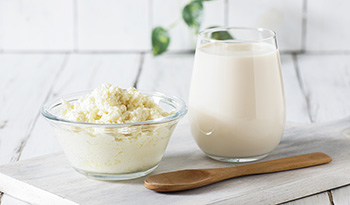Glutathione: 5 Science-Backed Benefits

Key Takeaways
- Glutathione is a powerful antioxidant produced naturally in your cells, composed of three amino acids: glutamate, glycine, and cysteine.
- It protects cells from damage, neutralizes toxins, supports the immune system, and is essential for liver health.
- You can increase your body's glutathione levels through specific foods, lifestyle choices, and targeted supplements like NAC.
What Is Glutathione?
Glutathione is a small protein molecule composed of the amino acids glutamate, cysteine, and glycine. It is one of the most important compounds that every cell in your body produces.
What Does Glutathione Do?
Glutathione helps protect our cells from damage and aids in detoxifying harmful compounds.
Over the course of 100 years of research, more than 100,000 scientific papers have established maintaining cellular glutathione levels as one of the most important keys in maintaining proper cellular function, immune health, and slowing the aging process.
This article will explore the top evidence-based benefits and how to increase your levels.
5 Benefits Of Glutathione
- It is an antioxidant. Glutathione is the cell’s major antioxidant to protect the cell from damage. It is also critical to the recycling and proper utilization of other antioxidants such as vitamins C and E.
- It has immune system effects. Glutathione protects immune cells from damage while also exerting some direct antiviral effects. It is also critical in modulating balance within the immune system. It boosts functions when the immune system is underactive and brings it back into balance when it is overactive.
- It has mitochondrial effects. Glutathione plays a critical role in the function of mitochondria (the energy-producing compartments in cells).
- It is critical to cellular function. Glutathione is required for the manufacture of many cellular proteins, the synthesis and repair of DNA, the activation and regulation of cellular enzymes involved in overall cell function, and the proper action of vitamin D3.
- It is a detoxifying compound. Glutathione is the body's most effective detoxifying agent. Glutathione binds undesirable toxins, pollutants, chemicals, heavy metals, and drug metabolites and excretes them through the urine or the gut.
Glutathione Deficiency
Glutathione levels tend to drop as we age, as well as when we are exposed to toxins, drugs, environmental pollution, and any other compound that causes oxidative damage.
Low levels of glutathione are linked to accelerated aging and almost every chronic disease, especially those associated with aging, like cognitive decline, type 2 diabetes, and many forms of chronic disease.1,2
Being older is a well-recognized risk factor for severe illness, complications, and death from a variety of causes, including viral infections. Lower glutathione levels make cells more susceptible to oxidative damage. Low glutathione levels can also impair the immune system as well as the protective barriers in the respiratory and gastrointestinal tract.
Sources Of Glutathione
Glutathione Foods
Diet can help raise glutathione levels, but only to a limited extent. The human body, mainly the liver, makes about 8,000 to 10,000 mg of glutathione daily. To put this amount into perspective, a healthy diet rich in fresh fruit and vegetables may provide about 150 mg of preformed glutathione per day. That said, the cell strives to hang on to glutathione, so the cumulative effects of higher dietary glutathione intake are certainly an important goal. Asparagus, avocado, and walnuts are particularly rich dietary sources of glutathione.
Glutathione Supplements
The most popular supplemental approaches to boost glutathione levels involve taking either glutathione or N-acetylcysteine. Prior to recent studies, there was some controversy with glutathione as a dietary supplement because it was thought that glutathione may not be absorbed when taken orally. One early study is often cited to show a lack of absorption. In the study, a single dose of 3,000 mg of glutathione failed to increase glutathione levels in the blood. However, it turns out there is another reason.7 Researchers were looking for free glutathione levels, and because glutathione is so valuable, it is quickly bound to transport proteins to be carried to cells8, causing it to not show up as free glutathione in the blood.
Frequently Asked Questions About Glutathione
What role does glutathione play in immune health?
Glutathione is critical for a healthy immune system, and research shows that higher levels are linked to a proper response to viral infections. It supports immune function in several key ways:
- It protects immune cells from damage while enhancing their ability to fight viruses.3-5
- It has shown direct effects in blocking viruses from replicating at various stages of their life cycle.3-5
Is it better to take glutathione or NAC?
Choosing between glutathione and N-acetylcysteine (NAC) depends on your specific health goals, as both offer significant clinical benefits. While the choice can be like "splitting hairs," there are key differences in how they work.
Advantages of Glutathione:
- It is the preformed, active compound. When you take a glutathione supplement, your body is getting the complete, ready-to-use "master antioxidant."
Advantages of NAC (N-Acetylcysteine):
- It provides the key building block for your body to produce its own glutathione. NAC is a form of the amino acid cysteine, which is essential for glutathione synthesis.
- It offers targeted respiratory support. NAC is particularly helpful in protecting the lungs and gastrointestinal tract from damage.
- It is a powerful mucus-modifying agent (mucolytic). This makes NAC a better choice when dealing with thick, sticky mucus associated with acute or chronic lung conditions.
Can glutathione supplements be absorbed orally?
Yes, while this was once a topic of debate, recent clinical studies have confirmed that glutathione can be effectively absorbed orally when taken as a supplement. Older studies often missed this effect because they failed to measure glutathione that travels through the blood bound to proteins. Here's what the research shows:
- A groundbreaking 2014 study found that oral supplementation significantly increased the level of protein-bound glutathione in the blood, explaining the shortcomings of previous absorption studies.
- A 2015 Penn State study confirmed this, showing that taking 250 mg to 1,000 mg of glutathione daily for six months significantly increased glutathione levels in whole blood, red blood cells, and even cheek cells.
- A 2018 animal study further detailed the process, showing that glutathione is
absorbed in the intestine and transported to the liver and other parts of the body for use.
How long does it take for glutathione supplements to work?
Like many antioxidants, glutathione starts working almost immediately in protecting cells against oxidative damage. But it will take one to two weeks for this protection to translate into noticeable benefits in improved antioxidant status. And for people with existing oxidative stress or metabolic challenges (e.g., diabetes, metabolic syndrome), it may take two to three months or more to see consistent improvements in antioxidant status.
References:
- Forman HJ, Zhang H, Rinna A. Glutathione: overview of its protective roles, measurement, and biosynthesis. Mol. Aspects Med. 2009;30, 1−12.
- Dwivedi D, Megha K, Mishra R, Mandal PK. Glutathione in Brain: Overview of Its Conformations, Functions, Biochemical Characteristics, Quantitation and Potential Therapeutic Role in Brain Disorders. Neurochem Res. 2020;45(7):1461-1480.
- Dröge W, Breitkreutz R. Glutathione and immune function. Proc Nutr Soc. 2000;59(4):595-600.
- Fraternale A, Brundu S, Magnani M. Glutathione and glutathione derivatives in immunotherapy. Biol Chem. 2017;398(2):261-275.
- Fraternale A, Paoletti MF, Casabianca A, et al. Antiviral and immunomodulatory properties of new pro-glutathione (GSH) molecules. Curr Med Chem. 2006;13(15):1749-1755.
- Jones DP, Coates RJ, Flagg EW, et al. Glutathione in foods listed in the National Cancer Institutes Health Habits and History Food Frequency Questionnaire. Nutr Cancer 1995;17:57-75.
- Witschi A, Reddy S, Stofer B, Lauterburg BH. The systemic availability of oral glutathione. Eur J Clin Pharmacol 1992;43(6):667-9.
- Kovacs-Nolan J, Rupa P, Matsui T, et al. In vitro and ex vivo uptake of glutathione (GSH) across the intestinal epithelium and fate of oral GSH after in vivo supplementation. J Agric Food Chem. 2014;62(39):9499-9506.
- Park EY, Shimura N, Konishi T, et al. Increase in the protein-bound form of glutathione in human blood after the oral administration of glutathione. J Agric Food Chem. 2014;62(26):6183-6189.
- Richie JP Jr, Nichenametla S, Neidig W, et al. Randomized controlled trial of oral glutathione supplementation on body stores of glutathione. Eur J Nutr. 2015;54(2):251-263.
- Yamada H, Ono S, Wada S, et al. Statuses of food-derived glutathione in intestine, blood, and liver of rat. NPJ Sci Food. 2018;2:3. Published 2018 Feb 6. doi:10.1038/s41538-018-0011-y.
- Sacco R, Eggenhoffner R, Giacomelli L. Glutathione in the treatment of liver diseases: insights from clinical practice. Minerva Gastroenterol Dietol. 2016;62(4):316-324.
- Kessoku T, Sumida Y, Imajo K, et al. Efficacy of Glutathione for the Treatment of Non-Alcoholic Fatty Liver Disease: An Open-Label, Multicenter, Prospective Study. J Hepatology 2016;64(2):S500.
- Šalamon Š, Kramar B, Marolt TP, Poljšak B, Milisav I. Medical and Dietary Uses of N-Acetylcysteine. Antioxidants (Basel). 2019;8(5):111.
- Pei Y, Liu H, Yang Y, et al. Biological Activities and Potential Oral Applications of N-Acetylcysteine: Progress and Prospects. Oxid Med Cell Longev. 2018;2018:2835787.
- Elbini Dhouib I, Jallouli M, Annabi A, Gharbi N, Elfazaa S, Lasram MM. A minireview on N-acetylcysteine: An old drug with new approaches. Life Sci. 2016;151:359-363. doi:10.1016/j.lfs.2016.03.00.
- Santus P, Corsico A, Solidoro P, Braido F, Di Marco F, Scichilone N. Oxidative stress and respiratory system: pharmacological and clinical reappraisal of N-acetylcysteine. COPD. 2014 Dec;11(6):705-1.
- Stey C, Steurer J, Bachmann S, Medici TC, Tramer MR. The effect of oral N-acetylcysteine in chronic bronchitis: a quantitative systematic review. Eur Respir J 2000;16(2):253-62.
- Grandjean EM, Berthet P, Ruffmann R, Leuenberger P. Efficacy of oral long-term N-acetylcysteine in chronic bronchopulmonary disease: a meta-analysis of published double-blind, placebo-controlled clinical trials. Clin Ther 2000;22(2):209-21.
DISCLAIMER:This Wellness Hub does not intend to provide diagnosis...
















































































 Table of Contents
Table of Contents















